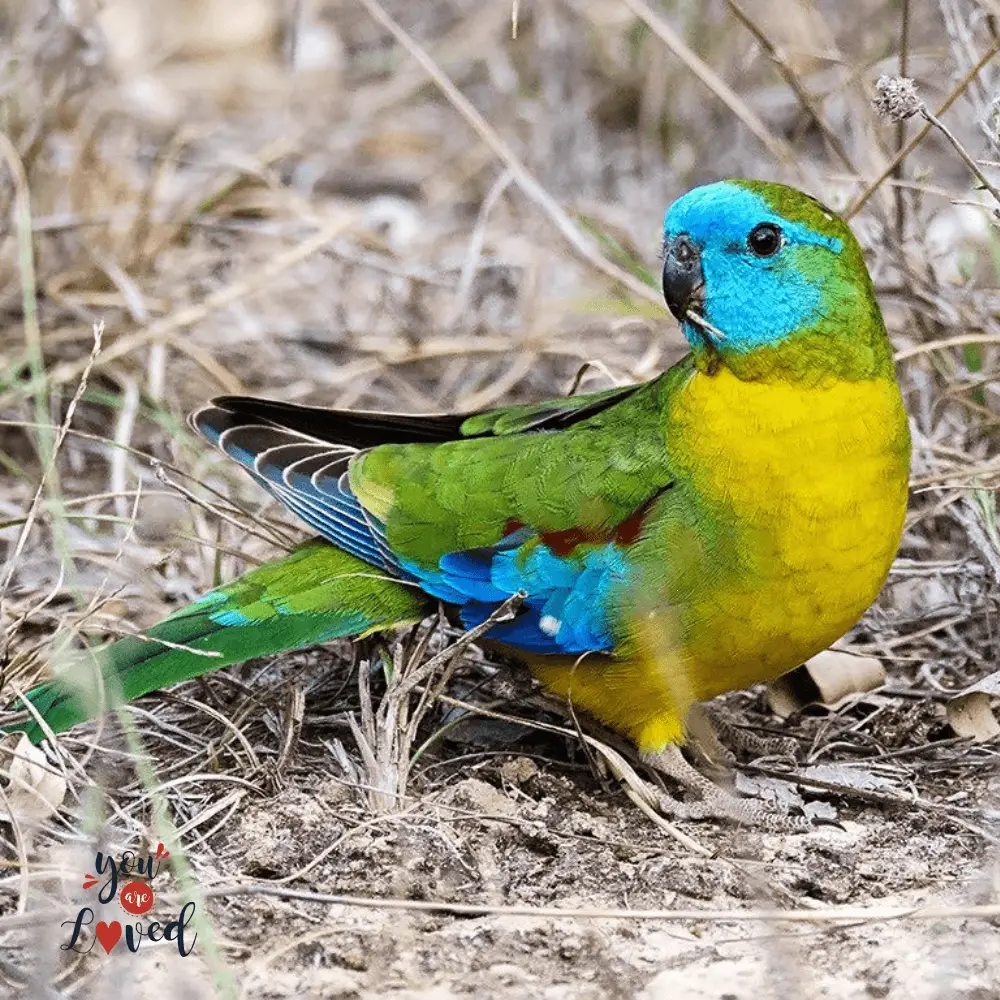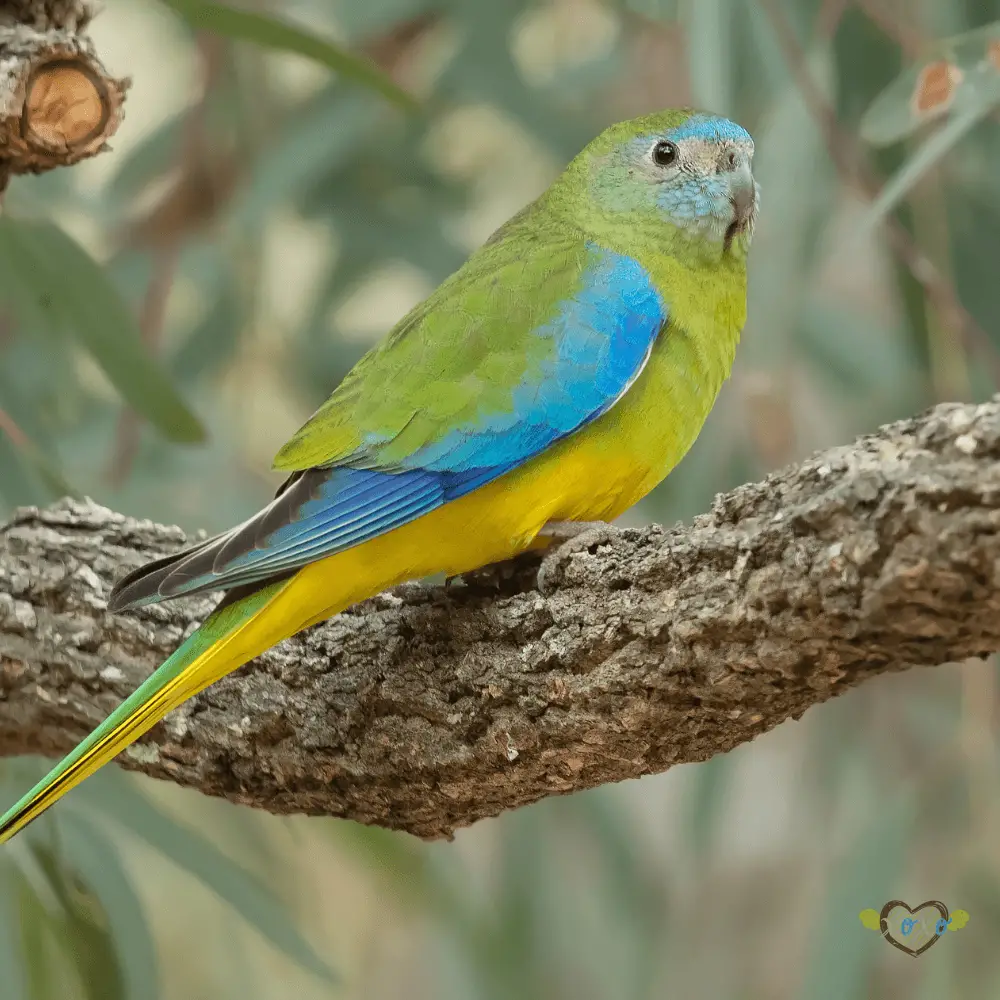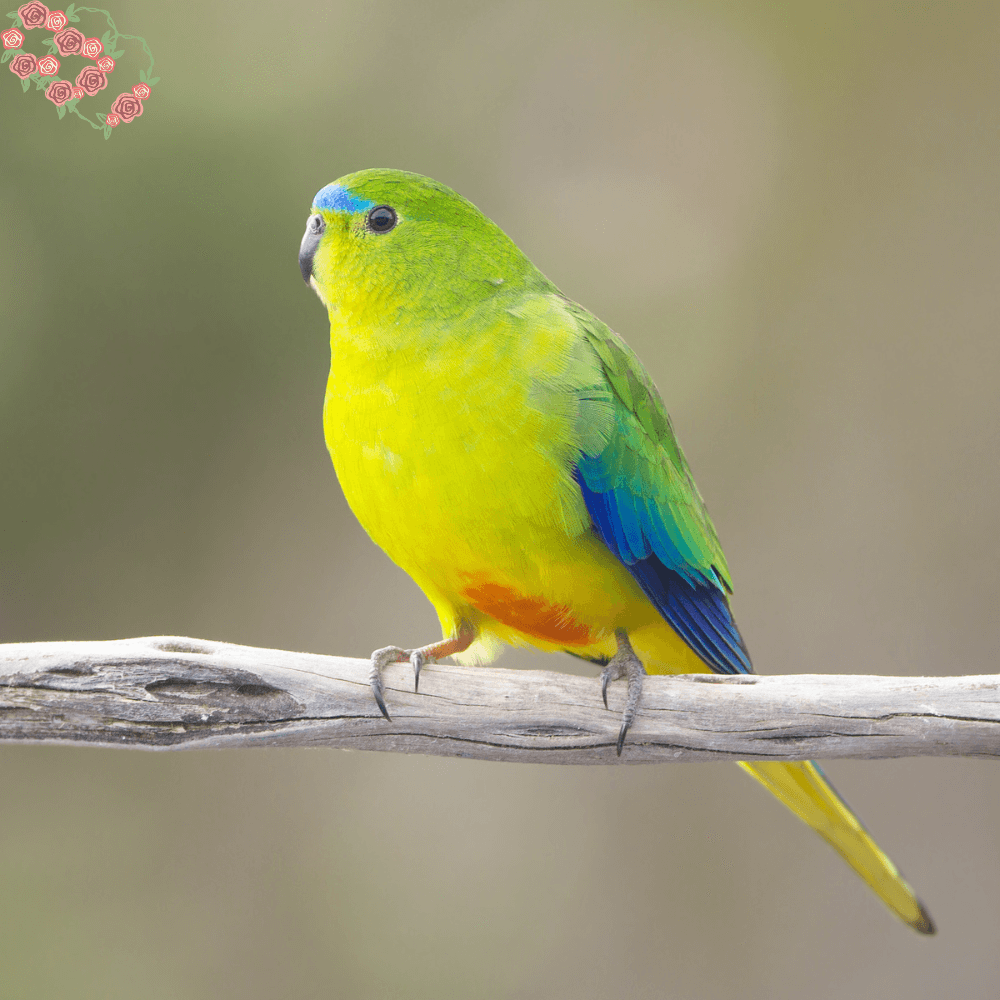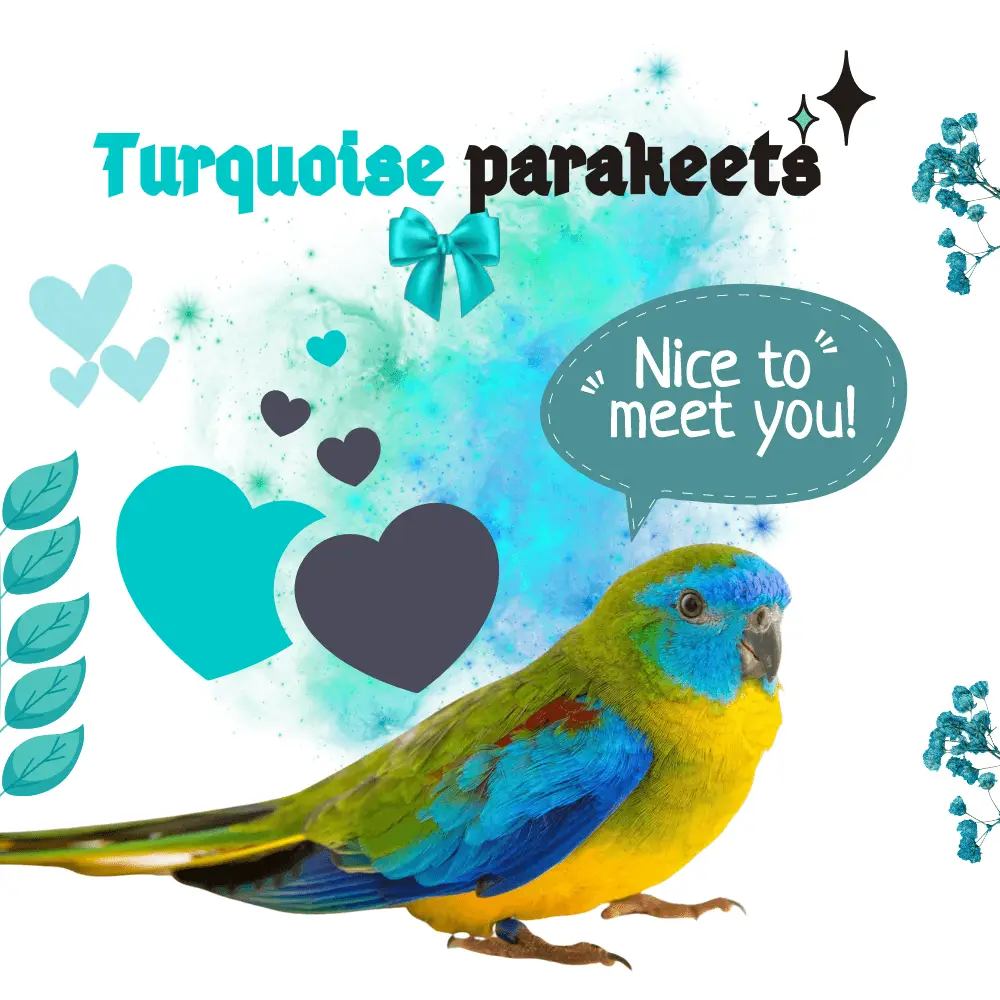Turquoise parakeets from Australia are very pleasant parrots. In addition, this parakeet seems very suitable for people who live in apartments. Indeed, the Turquoise is a silent parakeet.
The plumage of the Turquoisine parakeet features several colors. The head of this parakeet delivers shades of blue hues. The wings and back of this parakeet are shimmering green, as is its throat.
At the level of its belly, we notice that it is canary yellow in color leaning towards greens. The part of the wings towards the belly of the Turquoise parakeets is of a sky-blue color. And on her cheeks, light blue colors are also exposed.
The beak of the Turquoise parakeets as well as its eyes are in black tones. Its legs are pink.
The Turquoise parakeets appear as pleasant and gentle parakeets. In addition, in this parakeet, sexual dimorphism is present. Indeed, the females are composed mainly of yellow and green. While in the male, red appears at the level of his wings. The female offers darker and less scintillating colors than those the male.
Weight: The Turquoise Parakeet weighs approximately 40-50 g.
Size: The Turquoise parakeet measures approximately 20 to 25 cm. This is a medium-sized parakeet.
Where turquoise is found
The Turquoise parakeet, also known by the scientific name of Neophema pulchella, is part of the family Psittacidae and order Psittaciformes.
The Turquoise Parakeet geographically resides in Australian terrain. She likes to lodge as much in vast and flat areas as in bushy areas. She also loves to stay and relax in the hollows of the eucalyptus.
Turquoise personality

The Turquoise parakeet presents itself as a parakeet with a rather fearful and suspicious character. Indeed, it takes time and patience to tame it. This parakeet has a very docile and calm temperament. You won’t hear him scream or make a lot of noise. It is very suitable for people who want to get a bird in an apartment because it is a bird that has a soft song, even a silent bird.
What is the life expectancy of a parakeet turquoise
It has been found that Turquoise Parakeets live an average of 13-18 years.
Turquoise parakeet health

The Turquoise Parakeet like other birds can experience a variety of health issues including:
- Acariosis of the legs: If the symptoms of this disease are worrying (crusts and stains on the legs of birds), it nevertheless remains easy to treat with appropriate treatment. This disease is often triggered by poor cage maintenance.
- Salmonellosis: Salmonellosis is a contagious bacterium through the droppings of other contaminated birds, especially when your pet’s feces mix in their food. The symptoms of this disease are manifested by substantial weight loss as well as fairly pronounced diarrhea. As the disease can get worse, it is best to consult a veterinarian at the first signs of symptoms. Also, note that salmonellosis is transmissible to other animals and humans.
- Psittacosis: this is again a disease that can be transmitted through other individuals and again it is contagious to humans. An affected bird is identified by a lack of balance, abnormal breathing, and intense thirst. This disease can be treated with products designed for this purpose. It is also essential to thoroughly wash the cage and place the parakeet in quarantine to prevent the disease from spreading to other individuals. In quarantine, you must do everything possible to provide a balanced diet for your parakeet.
- Intestinal worms: this pathology is most often caused by a lack of hygiene within the environment of the Turquoisine parakeet. The presence of worms is very easily noticed due to the thinning of your bird. You can also observe white grubs in its droppings. If you want to deworm your parakeet, take good advice from your veterinarian who will prescribe the right treatment to give him.
Turquoise parakeet cage
The Turquoise parakeets particularly mix with other straight-billed species. It is true that with species with a hooked beak, the Turquoise parakeet and especially the male tends to be aggressive.
In the natural state, this parakeet is very fulfilled in the company of a single parakeet with which they will form a couple.
The Turquoise parakeet has great vivacity, it is a parakeet that takes great pleasure in flying. This parakeet would be happy to live in a large aviary that would allow him to flourish and exercise.
Turquoise parakeet food

You will find seeds specially prepared for your Turquoisine parakeet to provide it with everything its body needs. However, the Turquoisine parakeet also needs fruits, vegetables or even sprouted seeds.
These products will provide him with an optimal vitamin supplement, such as vitamins A, B, C, and E, but also potassium.

